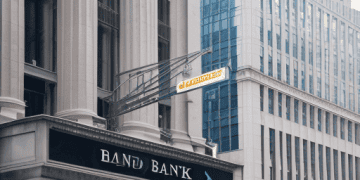A recent Federal Reserve assessment reveals that major U.S. banks are struggling to reliably model their exposure to climate-related risks. The findings were made public on May 9, following the first-ever test of how well six of the world’s largest banks could evaluate their vulnerability to extreme weather events and the transition to clean energy.
The assessment, which tested the banks’ ability to predict risks associated with climate scenarios, highlighted significant difficulties. Fed Vice Chair Michael Barr commented during a House Financial Services Committee hearing that many of the banks are still in the early stages of understanding and managing climate-related risks.
The six banks involved—JPMorgan Chase, Bank of America, Wells Fargo, Goldman Sachs, Morgan Stanley, and Citigroup—cited challenges in obtaining reliable data and applying accurate models to measure their climate risks. The Fed report noted that climate risks remain “highly uncertain and challenging to measure,” with the banks pointing to gaps in available data as a significant obstacle.
Financial experts suggest that the results underline the need for improved climate data and modeling techniques to more effectively address the financial risks posed by climate change. These six banks, which collectively manage over $14 trillion in assets, have indicated plans to address these challenges by investing in better data, models, and risk management capabilities.
Richard Berner, a financial risk expert, emphasized that the lack of data and the need for more advanced analytical capabilities are central to the issue. He expressed that the results should be seen as a step forward in raising awareness about the need to develop more robust climate risk analysis tools.
This issue is not unique to the U.S. Regulators in other regions, including the Bank of England, have reported similar challenges as they have required banks to conduct climate risk assessments. The Bank of England noted in 2022 that climate-related exercises were still in their early stages, with significant data gaps creating uncertainty around estimated losses.
Experts argue that improved data would enable banks to better understand their financial exposure to the energy transition and the increased frequency of natural disasters, which could disrupt sectors like insurance and mortgage markets.
Scott Kelly, senior vice president at the climate risk analytics firm Risilience, pointed out that better preparation could prevent a financial crisis like the one seen in 2008. The Fed’s climate risk exercise mirrors those conducted by other global financial regulators in countries like the UK, the EU, and Australia. These tests, which resemble traditional stress tests, are meant to help financial institutions prepare for potential climate-related shocks, even if those scenarios remain hypothetical.
The Fed’s test involved asking the banks to evaluate the impact of two climate scenarios on their portfolios. In one scenario, governments fail to enact additional climate policies, while in the other, global warming is successfully limited. The banks were also tasked with modeling the impact of hurricanes and other natural disasters on their real estate portfolios.
While the specific scenarios tested are unlikely to happen as described, the Fed’s goal was to assess the banks’ preparedness for potential climate-related disruptions. However, the banks faced issues such as insufficient information about property details, including insurance coverage and construction materials, and reliance on assumptions and academic studies to fill gaps in data.
Additionally, climate-risk modeling itself remains in its infancy. The banks relied on external climate modeling firms, as they do not yet have the necessary in-house systems or expertise. Former Citigroup risk officer Clifford Rossi explained that climate models are oversimplified, and their reliability remains uncertain.
The challenges identified in the Fed’s report reflect broader concerns about the availability of consistent, reliable climate data, a problem that has also affected investors. The Securities and Exchange Commission (SEC) recently finalized a rule requiring public companies to disclose information related to their greenhouse gas emissions, climate goals, and exposure to extreme weather events.
Mekedas Belayneh, a policy advocate with Public Citizen, acknowledged the complexities of modeling climate risk and called for a broader approach to risk analysis that goes beyond traditional financial modeling. In response to these findings, the banks involved have stated they will continue to integrate climate risk analysis into their overall risk management frameworks and work to enhance their data, models, and expertise in the coming years.
For now, the Federal Reserve’s report indicates that a high level of uncertainty remains in the results of climate scenario analyses, which may affect how these findings are used in the future.
Discover the latest in supply chain logistics news on The Supply Chain Report. Free international trade tools are available at ADAMftd.com.
#ClimateRisk #BankingChallenges #FederalReserve #FinancialRegulation #SustainableFinance #RiskAssessment #ClimatePolicy















